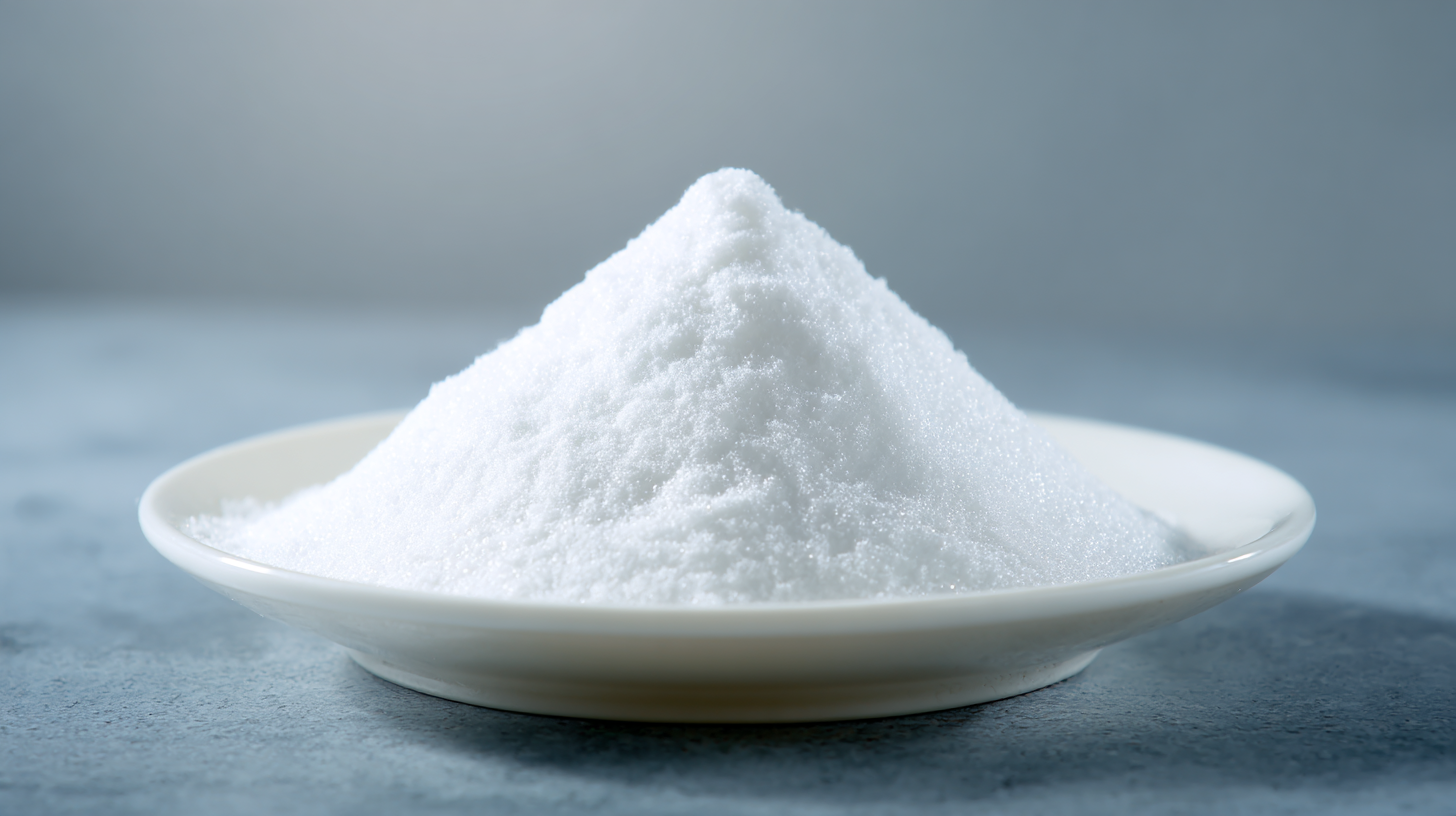
News
Ultimate Checklist for Sourcing the Best Tylosin Tartrate in Global Markets
The global demand for Tylosin Tartrate, a macrolide antibiotic widely used in veterinary medicine, has surged significantly in recent years, driven by the need for effective animal health solutions. According to a recent market analysis report by MarketsandMarkets, the livestock antibiotic market, which includes Tylosin Tartrate, is projected to reach $25.8 billion by 2025, growing at a CAGR of 5.6%. China's leading role in the manufacturing and exportation of Tylosin Tartrate is underscored by its advanced production capabilities and strict adherence to international quality standards. With a substantial portion of Tylosin Tartrate being exported to various countries, sourcing the highest quality product has become critical for businesses looking to thrive in competitive global markets. This ultimate checklist aims to provide insights on how to effectively source Tylosin Tartrate while ensuring quality and compliance with global regulations, making it an essential resource for industry stakeholders.

Understanding Tylosin Tartrate: A Comprehensive Overview
 Tylosin tartrate is an important antibiotic widely used in veterinary medicine, particularly for treating infections in livestock and poultry. Derived from the bacterium Streptomyces fradiae, it functions by inhibiting bacterial protein synthesis, making it effective against a variety of gram-positive bacteria. A comprehensive understanding of Tylosin tartrate includes its mechanism of action, potential side effects, and regulatory considerations in various regions.
Tylosin tartrate is an important antibiotic widely used in veterinary medicine, particularly for treating infections in livestock and poultry. Derived from the bacterium Streptomyces fradiae, it functions by inhibiting bacterial protein synthesis, making it effective against a variety of gram-positive bacteria. A comprehensive understanding of Tylosin tartrate includes its mechanism of action, potential side effects, and regulatory considerations in various regions.
Tips for sourcing the best Tylosin tartrate include ensuring the supplier is reputable and complies with international quality standards. Look for certificates of analysis, which confirm the purity and potency of the product. Additionally, consider the supplier's experience in the market; established suppliers often have a better understanding of quality control and regulatory requirements.
It is also essential to compare prices and product specifications among different suppliers. While cost is an important factor, it should not compromise the quality of the product. Request samples for testing before making large purchases, and engage with suppliers who demonstrate transparency in their sourcing and manufacturing processes. This approach can help in making an informed decision that meets both quality and budgetary expectations.
Key Benefits of Tylosin Tartrate in Livestock Health
Tylosin tartrate, a macrolide antibiotic, is widely recognized for its crucial role in promoting livestock health. According to the "Global Veterinary Antibiotics Market Analysis," the increasing incidence of livestock diseases has driven the demand for effective antibiotic treatments. Tylosin tartrate not only aids in the treatment of bacterial infections but also enhances growth performance in animals, making it a preferred choice for farmers aiming to optimize productivity.
In addition to its therapeutic benefits, tylosin tartrate contributes to improved feed efficiency. A study published in the "Journal of Animal Science" highlighted that incorporating tylosin into livestock diets can lead to a significant reduction in feed conversion ratios, which translates to healthier animals and lower operational costs for farmers. Furthermore, tylosin has shown effectiveness in disease prevention, particularly in swine and poultry, where it combats pathogens such as Mycoplasma and helps maintain overall herd health. As stringent regulations regarding antibiotic use in agriculture emerge, reliance on tylosin tartrate for sustainable livestock management continues to grow, underscoring its importance in modern animal husbandry.
Factors to Consider When Sourcing Tylosin Tartrate
When sourcing Tylosin Tartrate in global markets, several key factors must be taken into account to ensure you are making the best choice for your business. Firstly, it is crucial to evaluate the quality and purity of the product. Look for suppliers that provide Certificates of Analysis (CoA) and have a reputation for stringent quality control processes. The source of raw materials and manufacturing methods should align with international standards.
Tips: Consider establishing a strong relationship with your suppliers. Open communication can facilitate better negotiation terms and can also lead to insights into their supply chain and production processes. This transparency is essential for ensuring that the Tylosin Tartrate meets regulatory standards and your specific requirements.
Another critical factor is the pricing and payment terms. While it may be tempting to choose the cheapest option, remember that low prices can sometimes correlate with compromised quality. Compare quotes from multiple suppliers and consider long-term partnerships that can provide favorable conditions over time.
Tips: Keep an eye on market trends and fluctuations in pricing. Being informed about the supply and demand dynamics can help you make timely purchasing decisions. Additionally, always have a contingency plan for suppliers to mitigate risks associated with delivery delays or quality issues.
Top Global Suppliers of Tylosin Tartrate
When sourcing Tylosin Tartrate in global markets, it’s essential to identify and collaborate with top suppliers to ensure product quality and reliability. One of the foremost suppliers is Zoetis, known for its commitment to animal health and welfare, providing high-quality Tylosin Tartrate that meets stringent industry standards. Their reputation for consistent quality makes them a preferred choice among pharmaceutical manufacturers and animal feed producers alike.

Additionally, Northwest Farm Supply stands out as a competitive supplier, particularly for those looking for bulk purchasing options. They provide not only Tylosin Tartrate but also comprehensive customer support, making the procurement process smoother. By aligning with these top global suppliers, businesses can secure high-quality Tylosin Tartrate, ultimately contributing to improved health outcomes in livestock and a more sustainable agricultural practice.
Quality Assurance Measures for Tylosin Tartrate Products
When sourcing Tylosin Tartrate, a crucial antibiotic used primarily in veterinary medicine, ensuring quality assurance measures is paramount. According to a report by Allied Market Research, the global veterinary drug market is projected to reach $31 billion by 2026, underscoring the increased demand for high-quality pharmaceutical ingredients like Tylosin Tartrate. To guarantee product effectiveness and safety, manufacturers must adhere to stringent guidelines, such as Good Manufacturing Practices (GMP) and quality control protocols.
Further, a comprehensive analysis published in the Journal of Veterinary Pharmacology highlights that contaminants in Tylosin Tartrate can significantly affect the health of livestock and, consequently, food safety. It is critical for suppliers to provide Certificates of Analysis (COA) that detail the product's purity levels, microbial testing results, and dosage consistency. The utilization of advanced analytical techniques such as High-Performance Liquid Chromatography (HPLC) can also ensure that Tylosin Tartrate meets the pharmacopeial standards set by organizations like the United States Pharmacopeia (USP). By implementing these quality assurance measures, stakeholders can better navigate the complexities of sourcing Tylosin Tartrate in an increasingly global marketplace.





